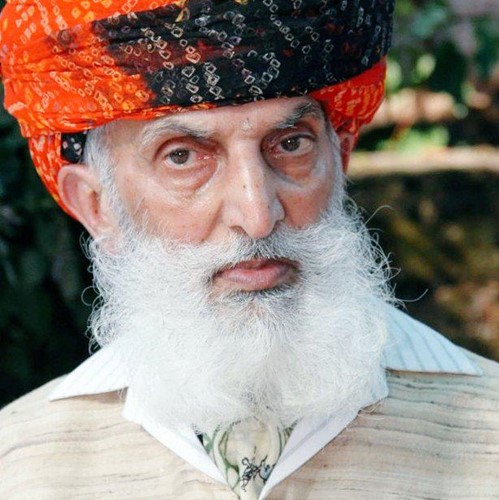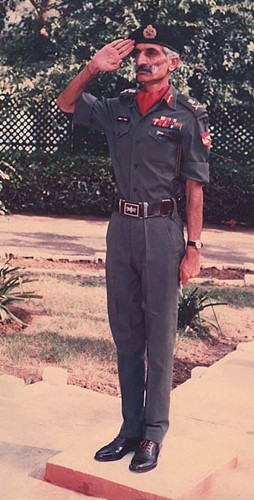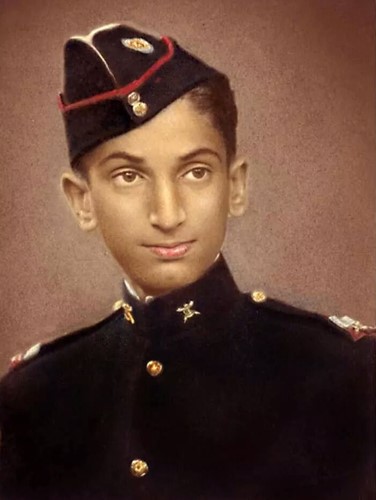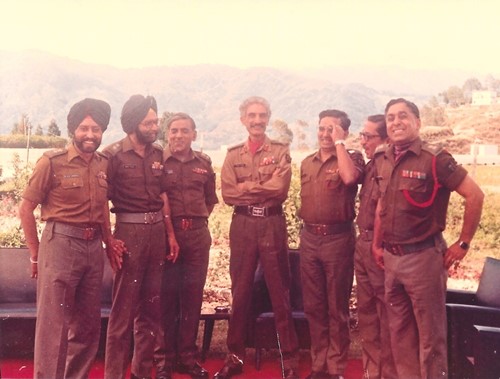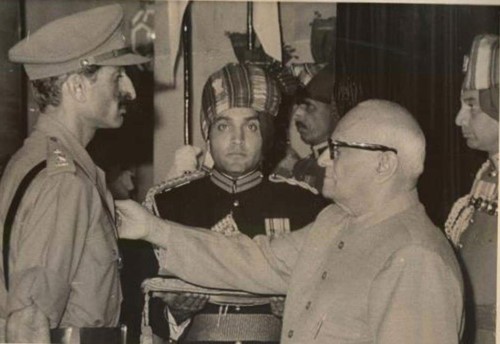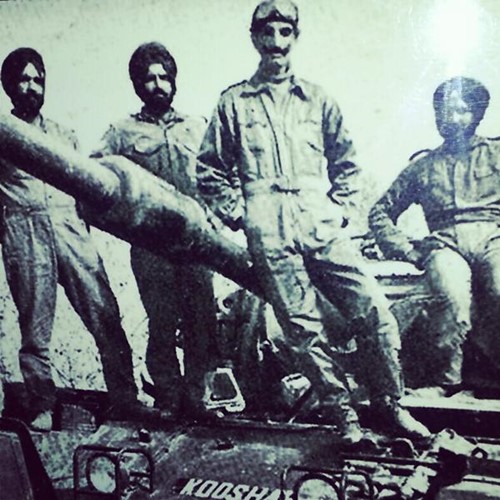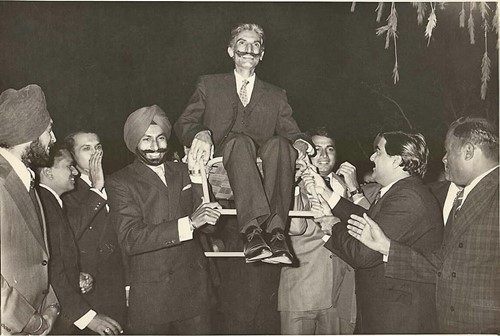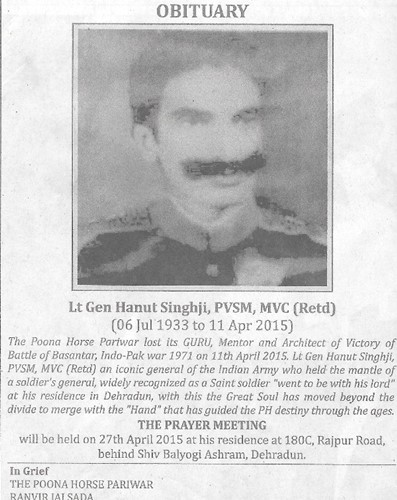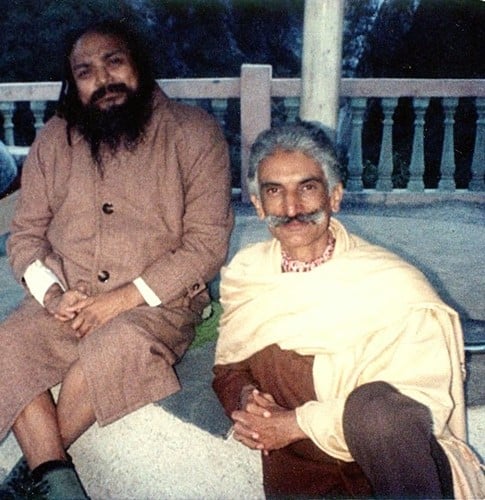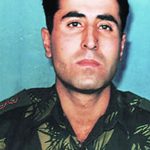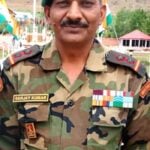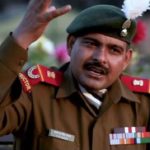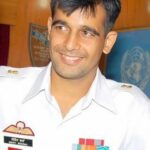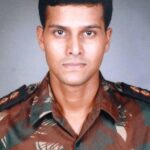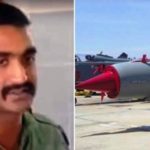Hanut Singh Age, Family, Biography & More
Quick Info→
Caste: Kshatriya (Rajput)
Age: 81 Years (at The Time Of Death)
Hometown: Rajpur, Madhya Pradesh
| Bio/Wiki | |
|---|---|
| Nickname(s) | Hunty [1]The Print |
| Profession | Army Officer (Ex.) |
| Famous For | His role in the Battle of Basantar in the Indo-Pak War of 1971 |
| Physical Stats & More | |
| Height (approx.) | in centimeters- 178 cm in meters- 1.78 m in feet & inches- 5’ 10” |
| Eye Colour | Black |
| Hair Colour | Grey |
| Military Service | |
| Service/Branch | Indian Army |
| Rank | Lieutenant General |
| Years of Service | 1952-1951 |
| Unit | The Poona Horse |
| Wars/Battles | Battle of Basantar in the Indo-Pakistani War of 1971 |
| Awards, Honours, Achievements | • Param Vishisht Seva Medal • Maha Vir Chakra |
| Personal Life | |
| Date of Birth | 6 July 1933 (Thursday) |
| Birthplace | Jasol, Rajasthan |
| Date of Death | 10 April 2015 (Friday) |
| Place of Death | Dehradun, Uttarakhand |
| Age (at the time of death) | 81 Years |
| Death Cause | Hanut Singh passed away during a meditation session at his home on 10 April 2015. [2]The Tribune |
| Zodiac sign | Cancer |
| Nationality | Indian |
| Hometown | Rajpur, Madhya Pradesh |
| School | Colonel Brown Cambridge School, Dehradun |
| College/University | Indian Military Academy, Dehradun |
| Caste | Kshatriya (Rajput) [3]Rajput Community |
| Relationships & More | |
| Marital Status (at the time of death) | Unmarried |
| Family | |
| Parents | Father- Lieut Colonel Arjun Singh Mother- Name Not Known |
Some Lesser Known Facts About Hanut Singh
- Lieutenant General Hanut Singh was a general officer in the Indian Army and he played a crucial role in the Battle of Basantar in the Indo-Pakistani War of 1971.
- Hanut Singh was born in a family of Rathore Rajputs, who are known for their valour, patriotism, courage, and highly individualistic nature.
- In 1949, Hanut joined the Joint Services Wing (JSW) of Indian Military Academy which was established at Clement Town, Dehradun. Later, this wing was shifted to Pune, and it was renamed the National Defence Academy. On 28 December 1952, Hanut was commissioned in the 17 Horse a.k.a. Poona Horse (one of the elite regiments of the Indian Army.)
- Hanut Singh’s father, Colonel Arjun Singh had served in Jodhpur Lancers and he commanded the Kacchawa Horse regiment.
- Hanut Singh did not participate in the Indo Pak War in 1965 but other soldiers from his regiment went to war, and the Poona Horse regiment emerged as the highly decorated regiment in the war, winning a Param Vir Chakra. In 1965, Lt. Col. A. B. Tarapore received the Param Vir Chakra Award.
- Hanut Singh was posted as the Brigade Major of the 66th Brigade at the time of the Indo-Pakistani War in 1965; however, he was a part of the Indo-Pakistani War in 1971, during the Battle of Basantar, and he was awarded the Maha Vir Chakra. The citation of the Maha Vir Chakra read-
Lieutenant Colonel Hanut Singh was commanding 17 Horse in Shakargarh Sector of the Western Front. On 16 December 1971, his regiment was inducted into the Basantar River bridgehead and took up positions ahead of the infantry. The enemy launched a number of armoured attacks in strength on 16 and 17 December. Undeterred by enemy medium artillery and tank fire, Lieutenant Colonel Hanut Singh moved from one threatened sector to another with utter disregard for his personal safety. His presence and cool courage inspired his men to remain steadfast and perform commendable acts of gallantry.”
- After the war of 1971, Lt. General Hanut Singh’s bravery and valour were appreciated by the Pakistani soldiers and they gave him the title of ‘Fakhr-e-Hind.’
- In April 1983, Hanut was promoted as the Major General in the Indian Army, and then, he became the Lt. General in December 1985. He was the commander of the II Corps during Operation Brasstacks, and at this time, India almost went to war with Pakistan.
- Hanut Singh remained a bachelor his whole life as he believed that a married officer can’t devote himself wholeheartedly to his profession as he would have to spend time with his family too. He encouraged other’s to believe the same; this is the reason why the regiment Poona Horse had its fair share of senior bachelors.
- During the Battle of Basantar, Hanut Singh was leading his regiment across the uncleared minefield which was laid down by the enemy. Hanut Singh went ahead with the regiment and crossed the river without any causality. He divided the regiment into three squadrons and ordered them to take on the enemy. He said-
Fight from wherever you are and no tank will move back even an inch.”
- Hanut was known as the ‘Saint Soldier’ as he devoted his spare time to spiritual readings, and meditation. His favourite thing to do was to read books on a wide variety of subjects especially spiritual literature, and biographies of great men.
- After retiring from service on 31 July 1991, Hanut Singh moved to Dehradun and spent the rest of his life meditating and reading books. He passed away during his meditation session on 11 April 2015.
- He strongly followed the beliefs of God-man Shivabalayogi. He began his meditation practice after meeting him in his ashram.
References/Sources:

